Search Results for Tag: Arctic
Sea ice set to beat melt records
It comes as no surprise to me but I find it deeply worrying that scientists say we are heading for a record sea ice melt. Experts from the University of Colorado at Boulder say summer ice in the Arctic is already coming close to the lowest level recorded, although there are still a couple of weeks left in the summer melt season. Mark Serreze, director of the University’s National Snow and Ice Data Center has been telling news agencies he and his colleagues are amazed by the measurements coming in.
Read more on this and why the melt is so significant at Phys.Org.
The Russian environment agency also reported record melting this month.
Meanwhile, the Chinese have sent their ice-breaker through the Arctic, as reported in the last ice blog post. Russia is stepping up efforts to make the Northern Route more regularly accessible. Canada is setting up a new high Arctic research station. The hunt for oil and gas in previously inaccessible areas is attracting more and more interest. The battle for influence in the Arctic is heating up with the climate. At the same time I read somewhere the other day that cars today have more horsepower than ever before. Aren’t we supposed to be saving energy and cutting emissions?
Record melt helps first Chinese ship across Arctic
Returning after several trips, I’ve been catching up on the Arctic news and noted with concern but unfortunately not really surprise that the Snow Dragon or Xuelong, a Chinese icebreaker, has become the first ship from China to cross the Arctic Ocean. It arrived in Iceland after sailing the Northern Route, along the coast of Russia. The expedition leader Huigen Yang, head of China’s Polar Research Institute, said he had expected a lot more ice along the route. The sea ice floating on the Arctic Ocean actually seems set to beat the record low from 2007. Clearly, Chinese interest is growing, as the melting ice opens up a shorter sea route and, of course potential access to oil, gas and minerals. The country has applied for observer status at the Arctic Council, which consist of the Arctic countries USA, Russia, Canada, Norway, Sweden, Finland, Denmark (because of Greenland) and Iceland. China is not the only interested party outside the Arctic states. Japan, South Korea, The European Commission and Italy are also applying. Germany, Britain, France, Poland, Spain and the Netherlands are already observers.
What clearer a signal could you get that climate change is affecting the Arctic than interest from the world’s number 2 economy, China, which, alas, is also the world’s top greenhouse gas emitter?
Greenland ice melting in extra-warm Arctic season
Apologies for a lack of new posts over the last week. The ice blogger was offline “up north”, not quite in the Arctic, but on the Orkney isles, where pioneering companies are testing devices to turn the power of the sea into climate-friendly electricity. But more about that at a later stage.
The worrying news about Greenland and the Arctic has jumped to the top of the ice blog agenda. NASA images of the Greenland ice sheet have indicated that for a few days this month almost the entire surface of the “ice island” was melting. A giant iceberg also broke off the Petermann Glacier in Greenland.
This is part of an overall development in the Arctic, where the summer has been unusually warm. The US National Snow and Ice Data Center (NSIDC) says a large portion of the sea route between Western Europe and the Pacific has as little ice as it would normally have at the END of the summer melt.
This type of widespread surface melting is not unprecedented, according to the NSIDC.It might happen around every 150 years in Greenland. But the difference is that previous events of this sort happened around 7,000 years ago when the sun was tilted in such a way that it sent more sunshine to extreme northern latitudes. This time, there is no solar tilt to explain the melt.
Mark Serreze, director and senior research scientist at the NSIDC says Arctic sea ice is also at the extreme low end of the satellite record for this time on year and could be on track to equal the 2007 record, when the Arctic ice reached its smallest size in the satellite record. The sea ice is in a “sorry state”, he says, with holes appearing in satellite images much like a Swiss cheese. What next?
Greenpeace on the streets to save Arctic
Greenpeace have launched a “Save the Arctic” campaign to stop oil drilling in the Arctic.
Activists have been out on the streets around the globe today – including in Bonn! I dropped by to see what was going on and record some interviews for Living Planet, our radio magazine. It was great to see the Arctic featuring in Bad Godesberg centre on a sunny morning with the shoppers out and about. I talked to Ulrike and Lukas, two different generations, both out to tell people about the dangers of oil drilling in the pristine Arctic environment. Lukas is 20 and really into environment protection. Tune in this coming Thursday evening to hear Lukas and Ulrike talk about their work. They – and all the other Greenpeace volunteers out around the planet – are collecting signatures for a petition to protect the Arctic. The signatures will be put together into a sealed container and deposited near the North Pole – where the Russian submarine put a flag a few years ago.
The Arctic doesn’t belong to one country, is the message – we need to protect it for all of us. Good work guys, thanks for spending your free time doing this and I hope you got lots more attention at your stand!
More Arctic stories:
China’s Arctic Ambitions spark concern
Energy giants cooperate for Arctic resources
Scientists raise Greenland climate threat
Greenpeace helps scientists research Arctic ocean
Rio 20 years on – and where’s the climate now?
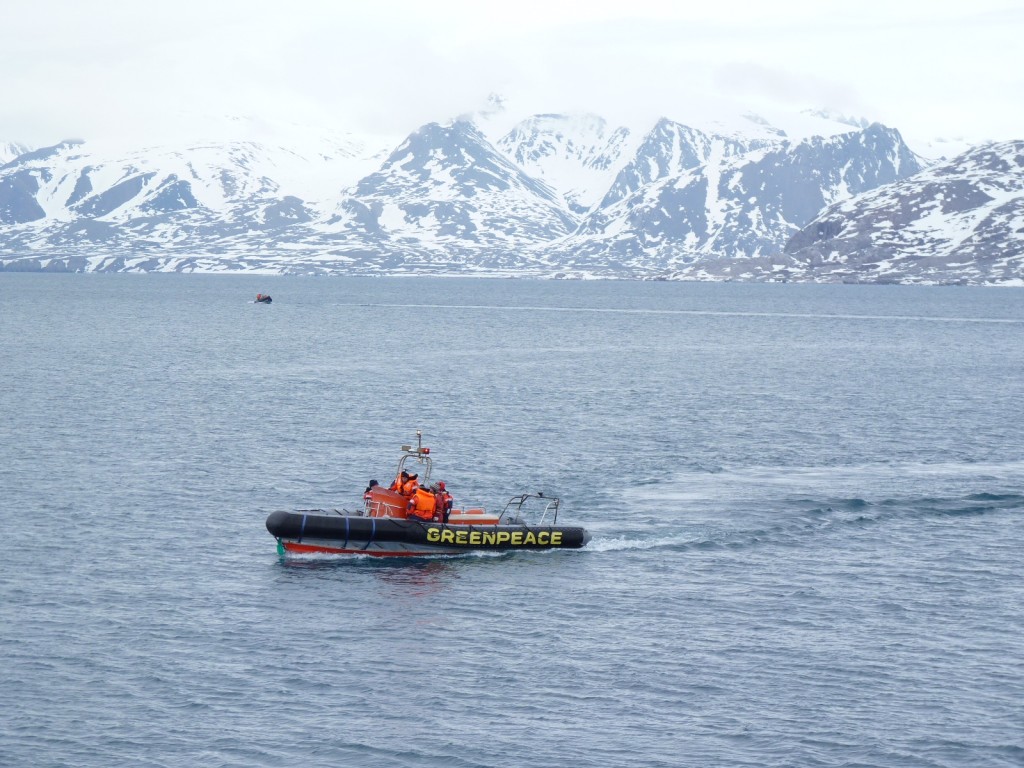
Greenpeace is regularly out and about in the Arctic, here off Spitzbergen. No wonder the activists are disappointed with Rio so far
I’ve just been working on an article on the record high CO2 concentration measured in Arctic Alaska in May. And it really brings it home to me that since the famous Earth summit in Rio in 1992 set the alarm bells ringing and the wheels in motion to tackle climate change – we have not really achieved very much. Now I am generally an optimistic person, but given that CO2 emissions were up again in 2011, the UN climate secretariat is still struggling to get countries on board for a Kyoto follow-up agreement, the USA still resists any binding targets and China and the other emerging countries are understandably unwilling to compromise their development to start solving a problem we industrialised countries caused – it is hard to work up enthusiasm for the Rio meeting. Copenhagen showed us all what can come of having expectations that are too high. Basically, the draft declaration from the meeting (sometimes I think it makes a bit of a farce of the huge meetings themselves that the draft has to be ready beforehand, but I understand the political and economic realities behind this) has already polarised response: on the one hand, the politicians who (have to?) say they would have liked more but we are lucky to get even this meagre document, on the other the ngos and activists who have expressed huge disappointment or even disgust. Let me give you a short quote from Kumi Naidoo’s blog, he’s executive director of Greenpeace International:
“The Future we Want is nowhere to be found in the already agreed Rio+20 outcome text, which world leaders are now rubber stamping and Greenwashing. The spin cycle has begun. At the same time some 20,000 people marched on the streets of Rio in protest with an air of despair but clinging to hope.”
Let’s keep hoping…



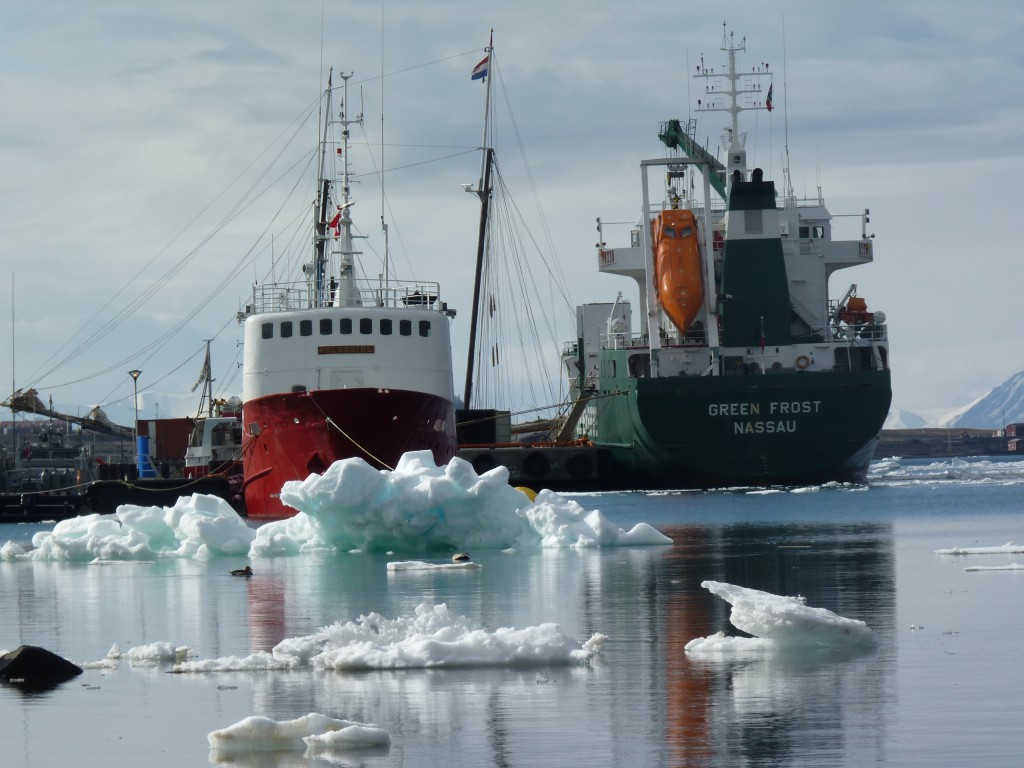


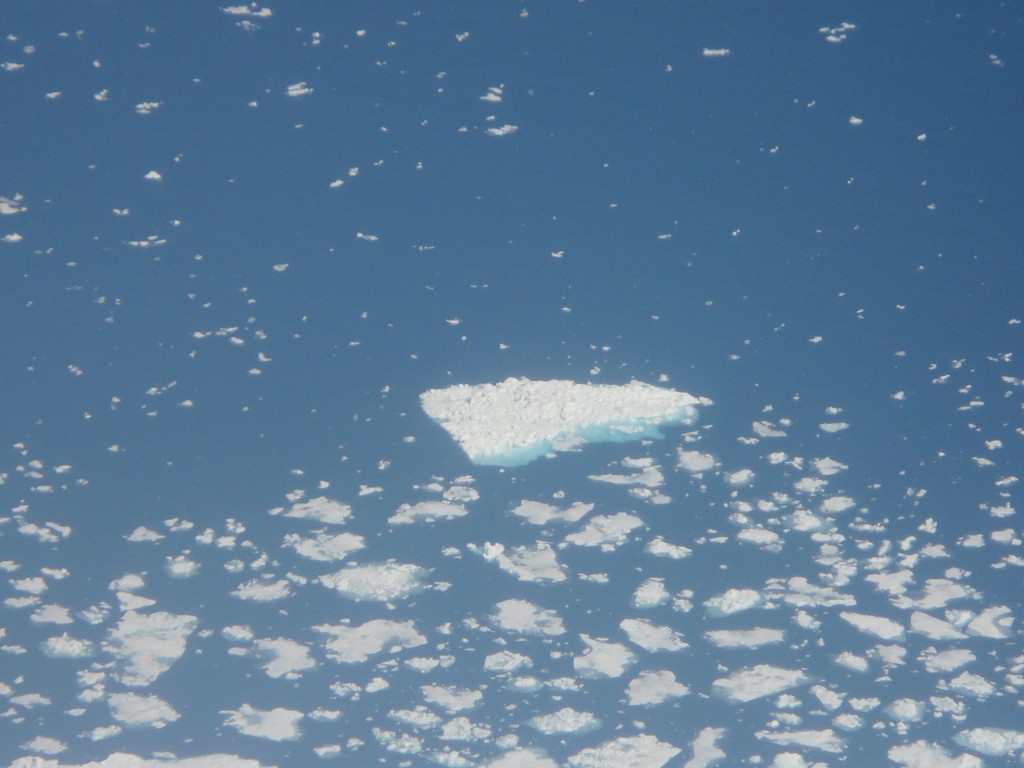
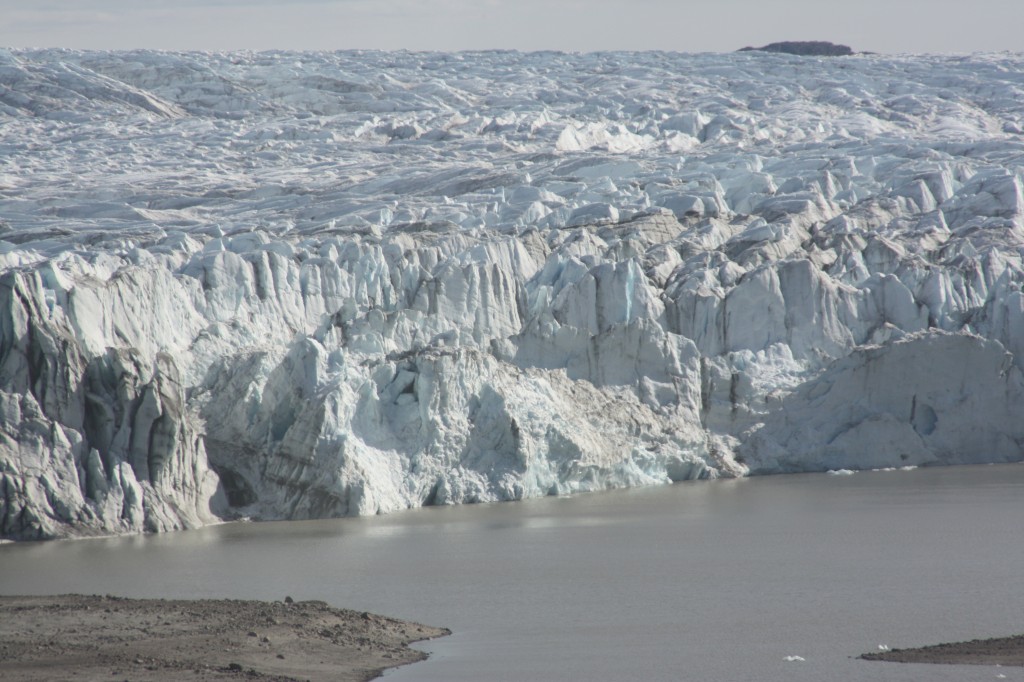
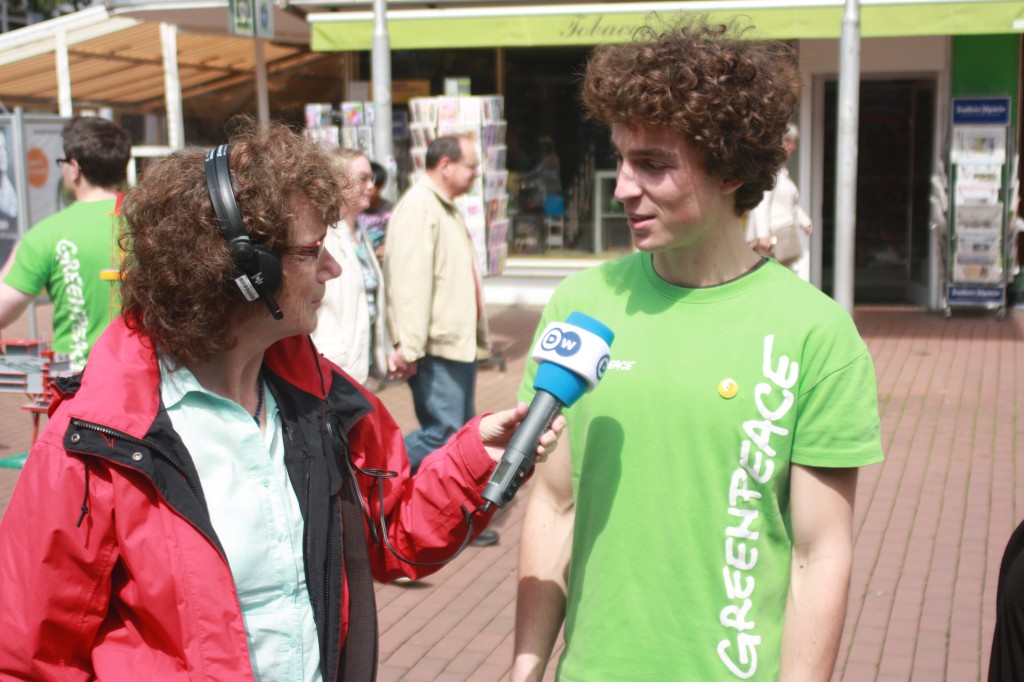
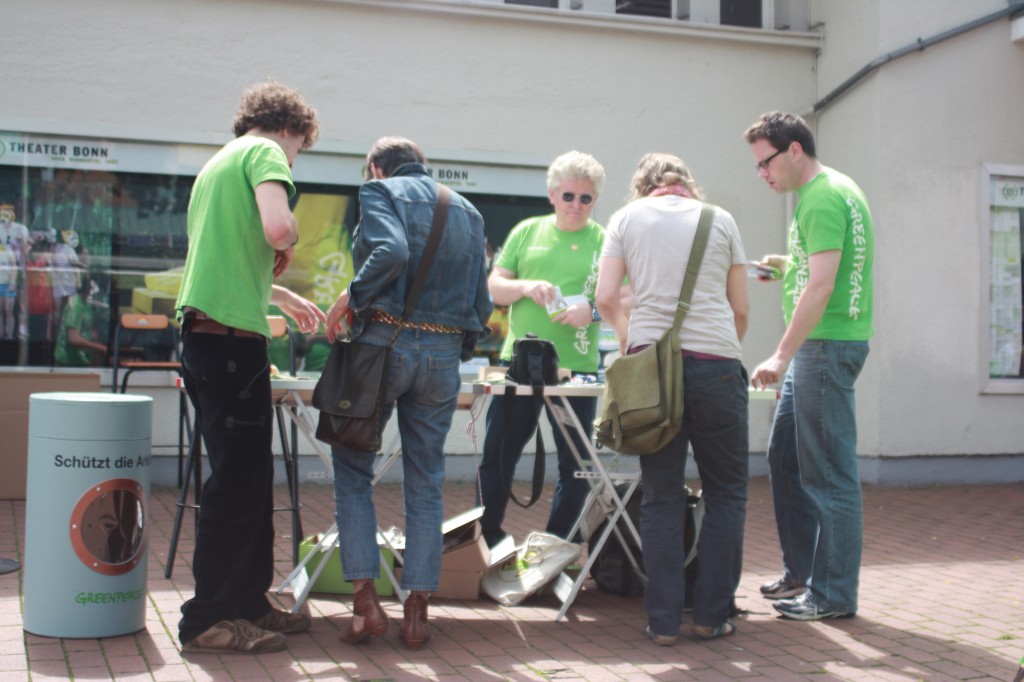

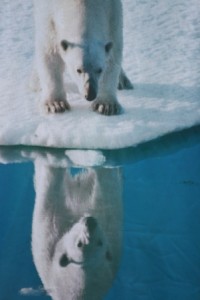
















Feedback